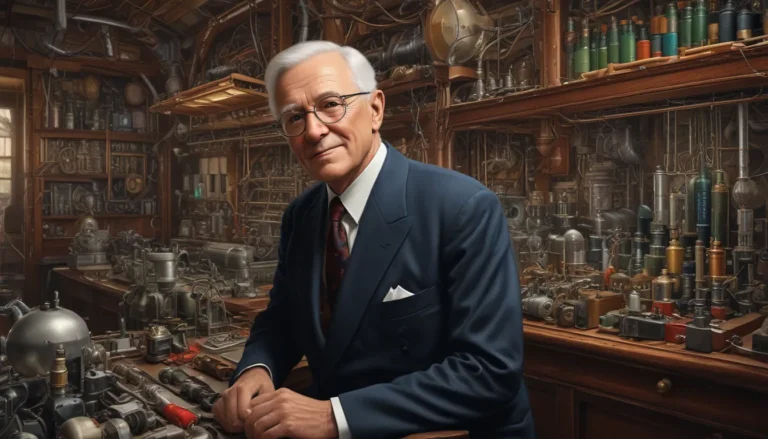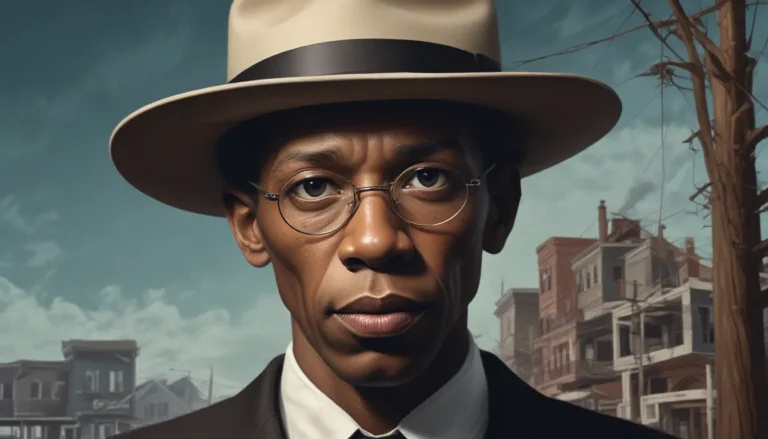The images in our articles may not match the content exactly. They are used to grab your attention, not to show the exact details in the text. The images complement the text but do not replace it.
Welcome to a journey through the captivating life and works of Robert Frost, a literary icon whose poetry continues to resonate with readers around the world. In this article, we will dive into the intriguing details of Frost’s life, his literary achievements, and some fascinating lesser-known facts about the acclaimed poet. Join us as we unravel the man behind the timeless verses and explore the enduring legacy of Robert Frost.
The Early Years: Birth and Family Background
On March 26, 1874, in San Francisco, California, Robert Lee Frost came into the world. Born to William Prescott Frost Jr. and Isabelle Moodie, both of English descent, Frost was destined to leave an indelible mark on American literature. His father, a journalist who later became the editor of the San Francisco Evening Bulletin, instilled in Frost an early appreciation for language and storytelling.
A Scholar in the Making: Educational Pursuits
From a young age, Frost’s love for literature and poetry shone brightly. Despite attending various schools, including Lawrence High School in Massachusetts and Dartmouth College, Frost did not complete a college degree. Instead, he chose to focus on honing his writing skills and embarking on a journey of personal exploration that would shape his poetic voice.
The Road to Recognition: Initial Works and Struggles
Frost’s literary journey was not without its challenges. His first poetry collection, “A Boy’s Will,” debuted in 1913, followed by “North of Boston” in 1914. Initially met with limited recognition, Frost faced financial difficulties that led him to seek refuge in England. However, his fortunes changed upon his return to the United States in 1915, as readers and critics alike embraced his unique style and profound insights.
Master of Verse: Recognition and Awards
Embracing vivid imagery, rural themes, and a deep exploration of human emotions, Frost’s poetry resonated with audiences, earning him widespread acclaim. Throughout his career, Frost received numerous accolades, including four Pulitzer Prizes for Poetry, solidifying his reputation as a literary giant of the 20th century.
Nature’s Muse: Drawing Inspiration from the Natural World
Nature served as a profound source of inspiration for Frost, who expertly wove vivid descriptions of landscapes into his poetry. By utilizing nature as a metaphor to explore complex human emotions and choices, Frost created timeless works that continue to captivate readers with their evocative imagery.
Layers of Meaning: Ambiguity and Irony in Frost’s Poetry
Frost’s poems are often imbued with layers of meaning and subtle ironies that challenge readers to engage in deep reflection. Through his use of ambiguity and irony, Frost invites audiences to explore the complexities of human experiences and the multifaceted nature of life itself.
The Art of Traditional Verse: Frost’s Mastery of Poetic Form
While Frost experimented with various poetic forms, he is best known for his mastery of traditional verse. By skillfully employing rhyme, meter, and poetic structures, Frost infused his poems with a musical quality that enhances the beauty and depth of his verses.
Exploring Life’s Paths: “The Road Not Taken”
Among Frost’s most iconic works, “The Road Not Taken” stands out as a beloved and widely analyzed poem. Reflecting on the choices we make in life and their profound impact on our journeys, this poem’s introspective tone and memorable lines have cemented its status as a timeless piece of literature.
In the Heart of Winter: “Stopping by Woods on a Snowy Evening”
Capturing the serene beauty of a wintry landscape, “Stopping by Woods on a Snowy Evening” showcases Frost’s ability to evoke powerful emotions through his words. This iconic poem invites readers to ponder the quiet contemplation that arises amidst nature’s tranquil embrace.
A Renaissance Man: Frost’s Multifaceted Talents
Beyond his prowess as a poet, Frost also demonstrated his versatility as a playwright, crafting works such as “A Masque of Reason” and “A Masque of Mercy.” Through his diverse literary endeavors, Frost showcased his creative depth and artistic vision.
Balancing Passion and Practicality: Frost’s Livelihood as a Poet
While Frost’s passion for poetry was unwavering, financial realities often necessitated that he seek alternative sources of income. To support his family, Frost taught at various institutions, including Amherst College and the University of Michigan, where he shared his love for literature with eager students.
A Presidential Connection: Frost’s Inaugural Poem for JFK
In a memorable moment in American history, Frost was invited to recite a poem at the inauguration of President John F. Kennedy in 1961. Despite the challenges posed by the glaring sunlight, Frost recited his well-known poem, “The Gift Outright,” from memory, showcasing his enduring legacy as a literary luminary.
A Bond with the Land: Frost’s Farmer Lifestyle
Rooted in a profound connection with nature and the rural lifestyle, Frost spent a significant portion of his life as a farmer in Derry, New Hampshire. The pastoral setting of his farm often influenced the themes and imagery found within his poetry, reflecting his deep reverence for the natural world.
A Name of Distinction: Robert Frost and the Politician
Interestingly, Robert Frost shared his name with a prominent American politician who served as the Governor of Vermont and a United States Senator. This serendipitous connection highlights the diverse paths taken by individuals who share a common moniker.
Embracing Frost’s Legacy: The Enduring Impact of Robert Frost
As we reflect on the life and works of Robert Frost, we are reminded of the enduring legacy that he has left behind. Frost’s poetry continues to captivate audiences with its profound insights, vivid imagery, and timeless themes that explore the intricacies of human existence, the beauty of nature, and the choices we confront in life. Through his masterful command of language and his ability to evoke universal emotions, Frost has secured his place as one of the most celebrated poets in American literary history.
Discover More: Frequently Asked Questions (FAQs)
What are some of Robert Frost’s famous poems?
- “The Road Not Taken”
- “Stopping by Woods on a Snowy Evening”
- “Fire and Ice”
- “Mending Wall”
- “Birches”
How many Pulitzer Prizes did Robert Frost win?
Robert Frost won four Pulitzer Prizes for Poetry during his lifetime, receiving accolades for collections such as “New Hampshire: A Poem with Notes and Grace Notes,” “Collected Poems,” “A Further Range,” and “A Witness Tree.”
Did Robert Frost have a unique writing style?
Yes, Robert Frost’s writing style was distinguished by vivid imagery, rural themes, and a nuanced exploration of human emotions. His poetry offered a contemplative and introspective perspective on life, setting his work apart as truly distinctive.
Did Robert Frost have notable connections with other writers?
Indeed, Robert Frost had significant relationships with fellow poets, including Ezra Pound and Edward Thomas. These friendships enriched Frost’s literary journey and facilitated his recognition within literary circles, underscoring the importance of artistic camaraderie.
How has Robert Frost influenced contemporary poetry?
Robert Frost’s impact on contemporary poetry remains profound, as his timeless themes, evocative imagery, and introspective exploration of human experiences continue to inspire poets and writers today. Frost’s ability to capture universal emotions in his poetry ensures that his work remains relevant and influential across generations.
As we conclude our exploration of Robert Frost’s life and legacy, we invite you to immerse yourself in his poetry, where the beauty of language and the depth of human experience converge in extraordinary ways. Join us in celebrating the enduring brilliance of Robert Frost, a poet whose words resonate across time and space, bridging the gap between past and present with profound insight and unwavering artistry.






